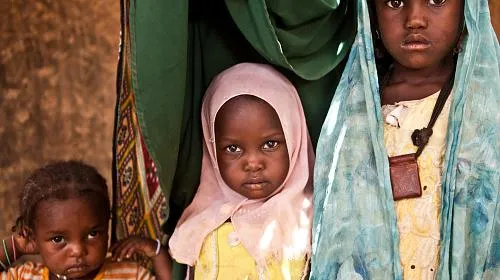ATLANTA (August 7, 2012) – CARE says an $806 million funding gap is threatening to derail the international community’s efforts to address the current food crisis and boost long-term food security in the Sahel region of West and Central Africa. More than 18 million people are facing hunger in the Sahel, including one million children at risk of severe malnutrition.
Last year emergency funding for crises around the world experienced the biggest shortfall in a decade, according to the Global Humanitarian Assistance Report 2012. In 2011, humanitarian agencies requested $8.9 billion to assist people affected by emergencies globally but only received $5.5 billion – three percent shortfall.
The current shortage of funds to respond to the crisis in the Sahel might be the first sign of a new record low for global emergency funding in 2012.
So far, only half of the $1.6 billion needed by humanitarian agencies to avert the severe food and nutrition crisis in the region has been pledged.
“How do you choose who to help, if you know you can only reach half the people in need, because only half the money has been pledged?” asked CARE International’s Humanitarian Director, Barbara Jackson. “I recently visited CARE’s response to the crisis in a particularly hard-hit village in Chad, where I met with families who have eaten all their reserves and are totally dependent on outside assistance to survive the next few months,” explained Jackson. “Our staff and local officials know what’s needed to fight this crisis, now and in the long-term, but they only have half of what they need. Donors were very generous at the beginning of this disaster, but the missing funding is essential to help people endure the toughest months now and be better prepared to face other crises in the future.”
Early analysis seems to indicate that the Sahel region is at risk of continued crisis in the coming season, making it even more important to address this funding gap now.
Donations to CARE’s Sahel appeal have been steady but remain considerably below target. CARE needs $30 million for programs in Chad, Mali and Niger but to date has only been able to raise 42 percent of that amount.
“The current crisis, combined with the region-wide drought in 2005 and Niger’s food crisis of 2010, has made people of the Sahel extremely vulnerable,” explained CARE’s Regional Emergency Coordinator in the Sahel, Alain Lapierre. “Agricultural production in the Sahel for 2012 is 27 percent lower than last year and food prices continue to rise at alarming rates. In Mali, food prices have already more than doubled.”
CARE is on the ground in Chad, Mali and Niger, where 14.6 million people are affected by this crisis. CARE is injecting cash in the communities through short-term work programs, distributing food, and improving access to water, sanitation and hygiene. At the same time, CARE’s long-term development programs such as women-led savings groups and cereal banks are helping people build and protect their assets and livelihoods.
Media Contacts:
Atlanta: Nicole Harris, CARE, nharris@care.org, 1.404.979.9503, 1.404.735.0871
Atlanta: Brian Feagans, CARE, bfeagans@care.org, +1.404.979.9453, +1.404.457.4644

